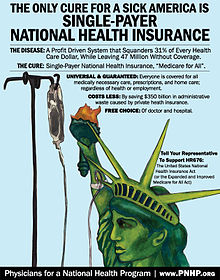Once I settled into my spacious quarters, I took a long overdue shower, changed clothes, and settled down to attend a lecture via the internet. Once that was done, it was time for breakfast. Fortunately for me, here in Mexico, 12:00 is still considered breakfast time. I walked a few short blocks to the town square and found my favorite restaurant, El Correo. I settled in and in my broken Spanish ordered my favorite dish, Migas, Mexicana. That is, scrambled eggs prepared Mexican style with tomatoes, onions, and chilis, with fried tortilla strips cooked into them, served alongside a side of refried beans. This really is my favorite Mexican breakfast. I thought I might get tortillas on the side, but instead was served a large crusty roll with butter and pineapple jam. I washed the entire thing down with agua de mineral con limon. I felt incredibly spoiled. Next I roamed around the town square, half expecting to find my companions who had all arrived several days before me and were staying in different homes. Not seeing any familiar faces, I did my souvenir shopping and visited an internet cafe to check email. Afterwards, I returned to the villa where I was staying and found it overrun with people setting up for a luncheon. It appeared that even in her absence, my hostess had arranged for a fundraising luncheon to raise money for a local cause. I thought it funny that her house would be full of strangers and visitors, her household running as if she was there to run it. About fifty people were expected so there were folks everywhere cooking food and setting up tables. I dodged the traffic and the animals (so many animals!) and sequestered myself in my room. The hostess has a small menagerie of exotic birds, cats, dogs, and two marmosets (monkeys) that chit chatted at me when I accidentally came upon them grooming one another on top of a bookshelf. I missed the entire event-even though it took place in the courtyard right outside my patio door. I closed my curtains and fell into a deep sleep, and when I woke up all the guests were gone, and all the same people were taking the tables down and cleaning the kitchen. It was near time to meet up with my traveling companions, as we had a prescheduled meeting.
I walked again to the town square, and immediately came upon them. It was so good to see them here in San Miguel after so many months of planning and talking. Michele joined us and took us to the home of her friend Carlos, born in Venuzuela, but a true Internationalist. He made us a lovely dinner of vergetarian paella (a Spanish dish of rice, vegetables, and usually seafood). I am very shy around Internationalists, since my travel abroad has been so limited. This may sound funny to some, who think I travel all the time, but I never traveled in childhood. Michele and many of her San Miguel friends and many of the expatriots have grown up abroad, spent their childhoods in many exotic places, and speak multiple languages. I feel quite provincial in their company. Nonetheless, Carlos is a gentleman and engages us all in small talk while we feast on his lovely meal. He doesn't dine with us, but in true Latin fashion, has a dinner appointment with friends after we leave! His dinner won't start until 9 or 10pm! (This is why they still serve breakfast at noon around here.) His home is lovely and the walls are covered in original art and photographs. I relaxed out on his patio with my friends and enjoyed the San Miguel sky bursting with stars
After returning from dinner, a few of us, Morningstar included, pack our bags and leave the town to spend the night at Michele's home out in the country. I have stayed here on a previous visit and I look forward to being there again. I didn't know I would spend the bulk of the trip here. But it is quiet and peaceful and the internet service has been excellent. During the day the housekeeper and gardener are around, but at night I am all alone and have been able to get much work done. I did come to San Miguel to walk, I and still hope that I might, but so far I have made the choice to forego the pilgrimage to complete the grant I'm working on. Yesterday I was mildly distraught to say no to the pilgrimage but today I am ready to accept what is. My dear friend Rebecca, helping me write the grant from 800 miles away wrote this:
I write all this to say maybe you would have been so distracted up here you would not have gotten your grant done. Maybe you just needed a quiet place to be for a few days with nothing to do except prepare for your miracle, your dream to come through. You are where you are supposed to be and doing what you are supposed to do. You will walk when you are done and that may be only a walk to get on the bus.
Embrace your time alone. It could replenish you to prepare for all that will fall upon you very soon.
I think this is true. If some miracle should prevail, and this grant is funded, my entire life will shift. Perhaps this was the miracle I came for and not the one I thought I was seeking at all...

